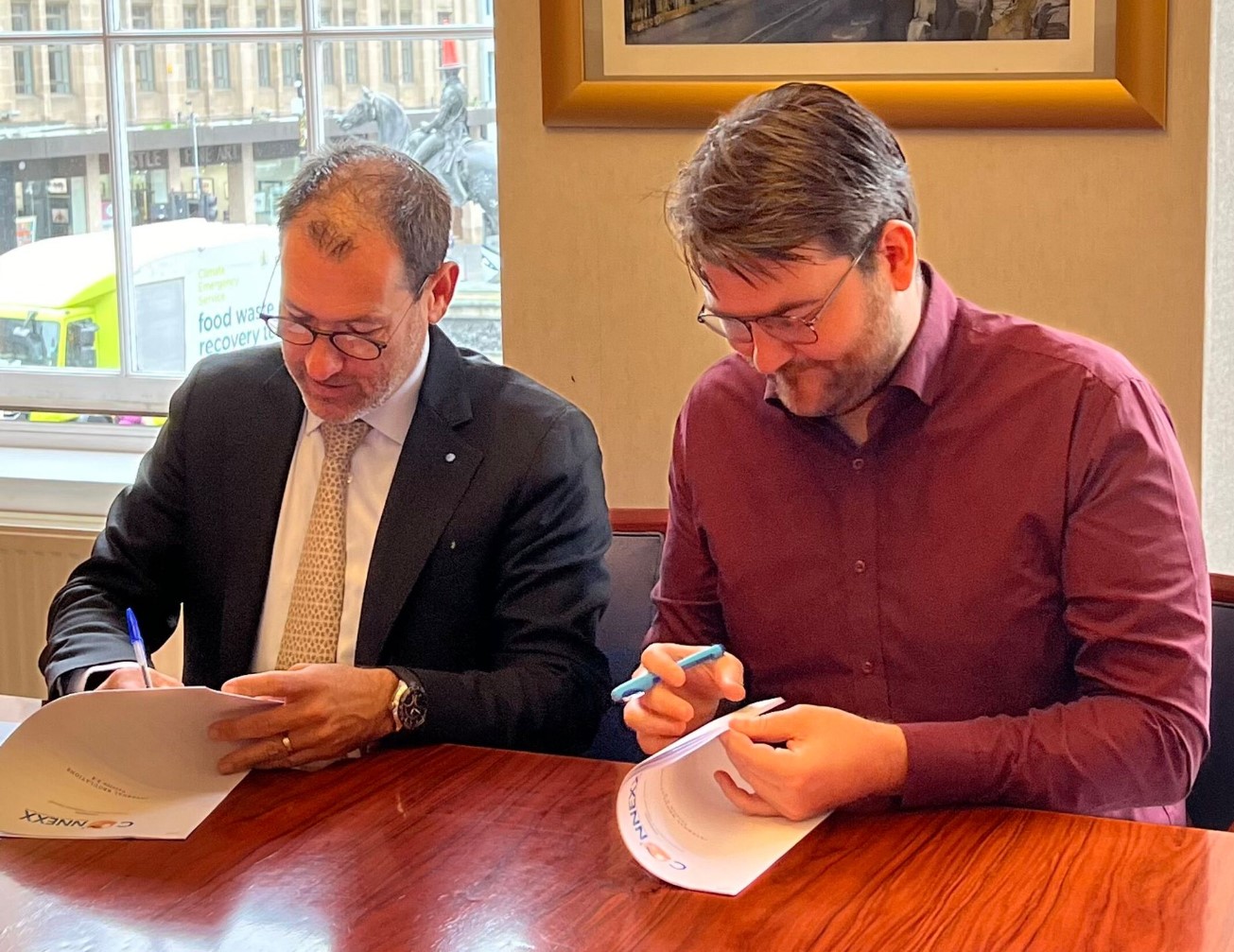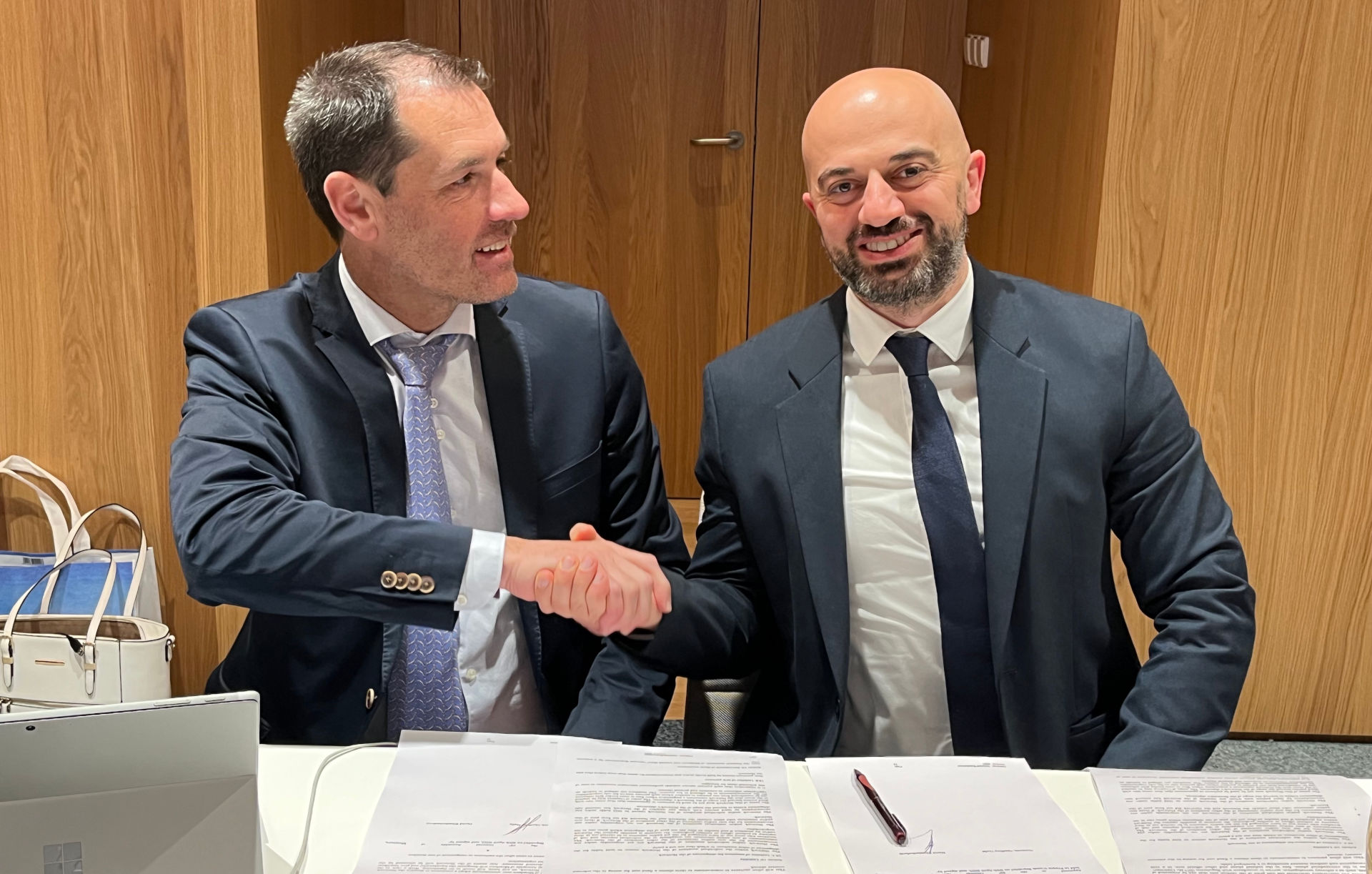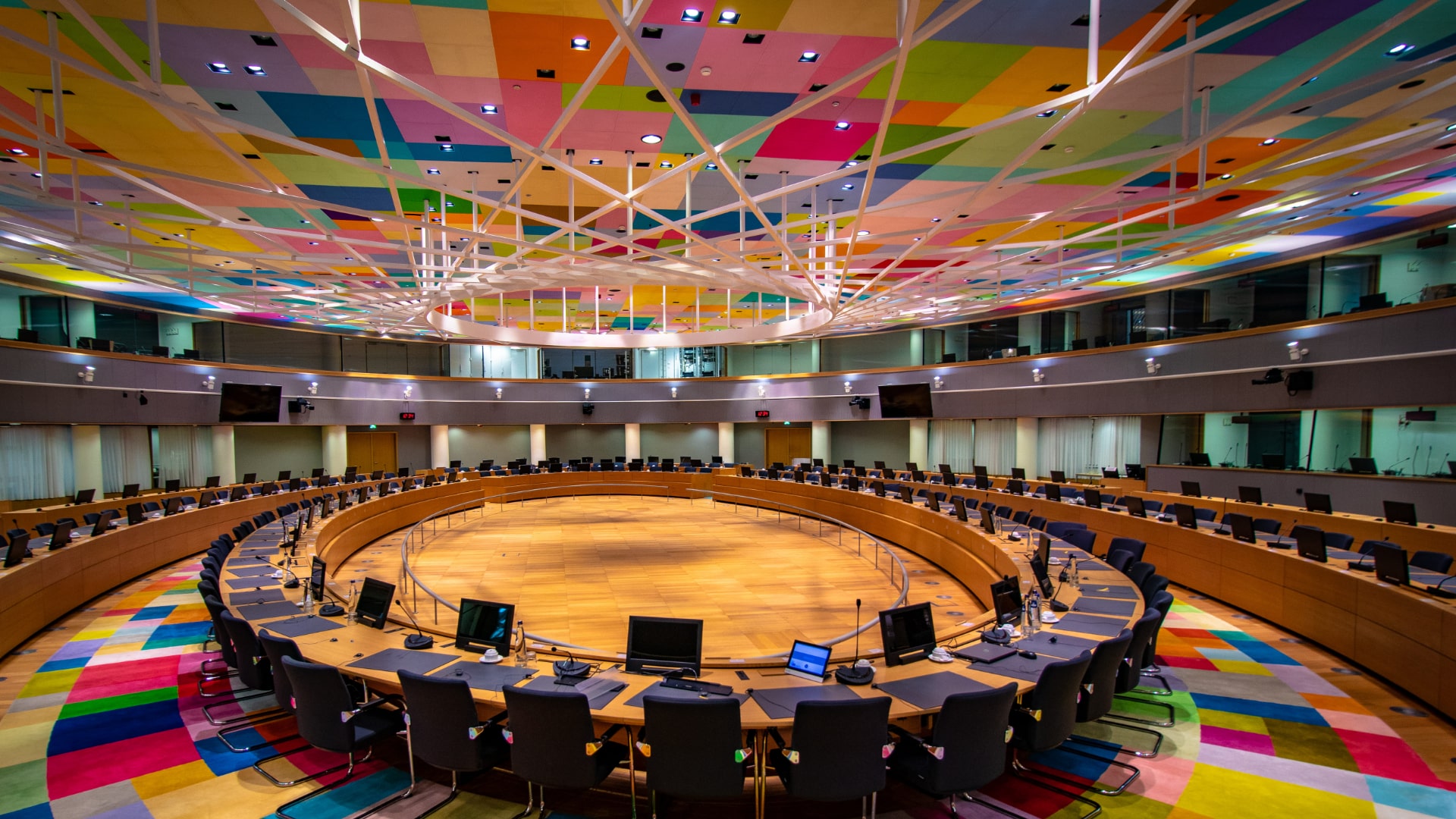Blog
The 25th General Assembly of Connexx has taken place in Glasgow (Scotland)

The 25th General Assembly of Connexx has taken place in Glasgow (Scotland) on the 19th and 20th September 2024, organized by David Walker (Walker Love).
The new partner Groot en Evers, represented by Bas De Veer, joined the network as a representative in the Netherlands and signed the Internal Regulations.
The decision was taken to transform the de facto association into a legal person, with its seat in the Grand Duchy of Luxembourg, in accordance with Luxembourg law.
The Role of Artificial Intelligence in debt collection management – 'Innovation and
Transformation' was explained by Fidel Mesghena, delegate of the German partner.
Bertrand Pierson of Leximpact (France) explained the Competences and limits of the
judicial officer's monopoly on the example of France and the structure of Leximpact.
The 24th General Assembly of Connexx to be held in Trieste Italy.

We are ready for an exciting event as Connexx Partners gears up for their 24th General Assembly, set to take place in the stunning city of Trieste, Italy.
Our Calendars are marked Friday, April 19th, 2024, when partners from 20 countries across Europe will gather in Trieste for this eagerly anticipated network meeting. The General Assembly will be graciously hosted by our Italian Partner, Massimiliano Blasone, an esteemed attorney-at-law specialising in civil and commercial judgments and cross-border enforcement. Massimiliano leads his own esteemed law firm, Studio Legale Blasone.
During this gathering, we'll dive into discussions on recent and upcoming procedural changes in each country. Additionally, presentations will cover various topics, including an introduction to a potential new partner in Greece by Mr. Ilias Tsipos, a Judicial Officer, and insights into cross-border enforcement post-Brexit by Martin Leyshon from England and Wales, representing the High Court Enforcement Group.
Leading the assembly will be our esteemed president, Mr. Geoffrey Gallé, from Luxembourg. As a tradition, we convene twice a year, with our next rendezvous scheduled in the vibrant city of Glasgow, hosted by David Walker of Walker Love.
We are ready for engaging discussions, valuable insights, and networking opportunities against the backdrop of the enchanting city of Trieste, on how to better serve our clients for cross border debt collection and enforcement.
UK signs up to Hague Convention on enforcement of foreign judgments

The UK committed to joining the 2019 Hague Convention on the Recognition and Enforcement of Foreign Judgments in Civil or Commercial Matters and signed up to it on 12th January 2024.
How will this help UK businesses?
The Hague Convention will help UK businesses who have dealings in other countries. It means that, should a dispute arise, any resulting judgment will be recognised and can be enforced in the courts of other countries that have joined the Convention.
Whilst many countries have domestic rules that allow judgments from other countries to be enforced, the rules in each may well differ, so the Convention’s international framework of rules gives greater certainty. It should also save time and money for enforcement.
Who has joined the Hague Convention?
There are currently 29 countries who are already part of the 2019 Hague Convention, including the 27 EU member states, the EU and Ukraine. Uruguay has signed and ratified the Convention, with it set to enter into force on 01 October 2024.
In addition this year, it has had several signatories: Israel, Costa Rica, the Russian Federation and the United States.
With 91 members of the Hague Conference on Private International Law (HCCH), the main multilateral forum for private international law rules consisting of several conventions including the 2019 Hague Convention, Hague 2019 has a potentially global reach.
When will it come into force?
Hague 2019 will come into force in the UK 12 months after ratification and will apply only to judgments given in proceedings commenced after that date.
Bulgaria’s Abandoned Investments – by Todor Lukov a former Judge now making a living as a Judicial Officer

Bulgaria’s Abandoned Investments – by Todor Lukov a former Judge now making a living as a Judicial Officer
As Bulgaria joined the EU with great excitement, a wave of overenthusiastic entrepreneurs embarked on ambitious projects, from extravagant hotels to bizarre thermal wellness centers. But alas, these dreams crumbled like a botched game of Jenga in the wake of the 2008-2009 Global Financial Crisis.
Fast forward to today, and these colossal, half-finished structures are the stuff of comedic legends, resembling archaeological wonders plucked straight from an Indiana Jones film. Among them, an enigmatic spa hotel perched at Mineral Water Springs, takes center stage. Enter not Captain Kirk, but Bailiff Lukov, the intrepid private judicial officer, armed with determination and a magnifying glass.
Lukov's mission is clear: locate, salvage, and auction these forgotten relics. His first obstacle? The architectural and technical blueprints, seemingly swallowed by a bureaucratic black hole. With the tenacity of a detective, Lukov embarks on an odyssey, turning every dusty corner of the city planning department upside down.
As the narrative unfolds, Lukov's escapades become more zany. Picture Lukov, magnifying glass in hand, sifting through ancient scrolls (well, maybe dusty paperwork), and attempting to decipher ancient engineering runes (or just outdated schematics). Each clue brings him closer to unraveling the hotel's secrets, all while dodging booby traps like loose floorboards and cobweb-covered filing cabinets.
But wait, the tale takes a comedic twist. Just as Lukov is about to throw in the towel, a quirky entrepreneur with an uncanny affinity for absurd investments appears. Armed with a penchant for the peculiar and a knack for sniffing out bargain prices, this investor sets their sights on the spa
hotel. Cue a bidding war that's more slapstick than serious, with characters stumbling over blueprints and chasing down elusive property deeds.
In the end, the spa hotel may find an unlikely savior – an eccentric investor who sees potential in its faded grandeur perhaps. With a flourish of pen strokes and a hearty laugh, the deal is yet to be struck, a fire sale maybe? Will the hotel be brought back from the brink of oblivion? As the credits roll on this uproarious tale, Lukov's office stands as a monument to perseverance and resilience, a place where even the most bizarre of challenges can be met with a steady legal expertise but healthy dose of humor as well.
To Be Continued ...
Connexx members attend their 22nd General Assembly

We recently held our 22nd General Assembly in the picturesque city of Prague.
During the event, the network proudly announced the addition of a new member, David Elsibedashvili's Private Enforcement Bureau and House of Business Law LLC, which is based in Georgia.
The signing of the Connexx internal regulations was also marked by the warm welcome extended to David by the President of Connexx, Geoffrey Gallé.
The Assembly was also attended by Dr. Cari Leyshon of CQIFY, supported by Dr. Jacquiline Hiddlestone, who joined the event virtually from Australia. Dr. Cari started the process of a members service charter that received input through the collaboration of the members, which is a testament to the network's commitment to its members.
The Assembly had a turnout of 17 member countries out of a total of 20, with attendees joining both in-person and online.
To learn more about how Connexx can assist with the collection of your European debts, please scroll through our website.
Collecting Debts in Ireland

Creditors are encouraged to secure their position by engaging with Debtors at an early stage. A brief overview from our partner Matthew Wales of Wales and Co Debt Collection Solicitors.
COVID 19 - DEBT COLLECTION BRIEFING – UPDATED
SOUTHERN IRELAND 16th FEBRUARY 2020.
It is abundantly clear that as a result of Covid 19 that there will be considerable difficulties in collecting debt. What is the best strategy to maximise your collections?
STEP 1 – ENGAGE WITH DEBTOR- PAYMENT ARRANGEMENTS AND TAKING SECURITY.
It is fatal for a creditor to fail to act in the hope that the current economic situation will improve in the short term. It is very important that the creditor seeks to engage with the debtor. There can be reluctance for a creditor to engage with a debtor during the Covid 19 pandemic but our experience is that the majority of debtors are willing to engage constructively with their creditors to reach an agreement. Please remember that your company needs cash flow to survive. In the current circumstances mediation and amicable settlement are preferable to litigation if at all possible. In this regard, at initial stages, threatening legal action when seeking to collect a debt is not helpful and should be avoided when contact is made with the debtor as the debtor may simply refuse to engage with you.
Communication with the debtor will allow you to differentiate between those debtors who are genuinely facing financial difficulties and to work with them and those debtors who are simply avoiding making payment to you potentially using Covid 19 as an excuse. In cases of an inability to pay due to Covid 19 it is reasonable to request a third party professional to supply evidence of the debtors inability to pay.
If a payment arrangement is entered into that arrangement should be monitored in case a different approach is required towards collection, should the debtors circumstances change. It is important that if possible creditors seek to gain a written admission of the due debt and a written repayment proposal of the debt is an admission of liability and will minimise any expensive legal disputes in relation to liability and will greatly simplify the legal process should that need to be employed.
In your discussions with your creditor you could also consider seeking to obtain some form of security from the debtor for the debt such as a personal guarantee or a charge over property. If you have a retention of title clause in your contract with your debtor, title to the goods does not pass until payment has been made so you may wish to enforce the retention of title clause and obtain return of your goods.
We would recommend you contact your Solicitor to discuss security issues to ensure that the security obtained/ or offered is capable of being enforced legally. If you decide because you have been given security to provide a moratorium on legal action to your creditor, ensure the security that is obtained will survive any insolvency of the debtor in the future .
If it has not proven possible to reach an accommodation with your debtor then you should discuss with your Solicitor the possibility of proceeding to step 2
STEP 2 – SEND DEMAND LETTER
The demand letter should be tailored to the particular circumstances of the debtor. Tell your Solicitor what those circumstances are so that he can tailor the letter to maximise chances of collection. The demand letter does not have to be aggressive in tone and can simply serve as a reminder to the debtor that you are still willing to engage with the debtor but you will escalate the matter unless either payment is made or there is a written agreement to pay. This is a process of escalation which maximises your collection rates. If the debtor does not engage then a final demand letter should be sent by your Solicitor enclosing draft proceedings for issue unless the debt is paid or payment proposal made.
STEP 3- ISSUE OF COURT PROCEEDINGS
In Southern Ireland the Courts are open but operating at reduced capacity and there will be significant delays in Court processes into the future.. In this regard it is very important that the correct legal procedures are undertaken appropriate to your case to avoid getting your case subsumed into a system that could take months if not years to conclude. This is particularly of concern if the case is likely to be formally defended. If the proceeding issued are not defended then it is a relatively quick procedure months rather than years to obtain your judgment and to get it enforced. If there is no dispute to the debt then serious consideration should be given to using liquidation procedures. Serious consideration should be given to this process because it can avoid protracted “defended cases” as the process is quick even in the current pandemic and does not lend itself easily to an unmerited defence of your claim.
Prior to the pandemic the debt had to be over €10,000 for this process to be employed which has now recently been altered so that this process is only appropriate to debts that are €50,000.00 or above to give protection to debtor companies during the pandemic. The first step in this process is to serve a liquidation demand. To commence the process a document known as a statutory demand is served on the Debtor company personally at its registered office. The limited company has 21 days from the date of service in which to either pay the debt or dispute the debt. This stage of the process is not expensive. If the limited company takes neither option, a winding up petition can be issued and a liquidator is appointed to wind up the company.
The purpose of this process is to put maximum pressure on the debtor company to pay its creditor and it is highly effective in this regard because the consequences of being liquidated are obviously very serious. Apart from the fact that the company will no longer technically exist and will have to cease to trade there are consequences for the Directors of the company who may be restricted from remaining or becoming directors of any other company and there are financial implications for them in this regard. This is also relevant to where a creditor may seem to set up a “phoenix” company to void liability for the debt.
PLEASE CONTACT US
We hope this briefing note has been of assistance to you.
If you need assistance with debt collection in Ireland you are most welcome to contact Matthew Wales Solicitor by email or telephone 003531 2935110.
We would be pleased to discuss on an informal basis any issues you have with collection in Ireland or Europe wide through our Connexx network, with no obligation.
More...
New Regulation (EU) 2020/1784 – service in Europe

As Regulation (EC) 1393/2007 has been in force for more than ten years, it was time to make a much-needed change to amend and modernise the amendments of this widely used Regulation.
The Commission had already evaluated the current Service Regulation in 2017 and concluded that transmission could be made faster and simpler through modern means of communication and that the procedure could be more streamlined.
The publication of the new Regulation (EU) 2020/1784 of the European Parliament and of the Council of 25 November 2020 on the service in the Member States of judicial and extrajudicial documents in civil or commercial matters is a major step towards modernisation.
The major changes that the new Service Regulation introduces compared to the current Service Regulation are the e-CODEX; is the possibility of effecting service by electronic means; the possibility of signing documents, records and forms with electronic signatures; and, lastly, assistance in address enquiries.
The e-CODEX (E-Justice Communication via Online Data Exchange) is a decentralised information system consisting of national IT systems interconnected by a secure and reliable communication infrastructure that ensures users can send and receive records, documents and forms by electronic means. This is all from the perspective of effecting service of documents faster and more efficiently.
And there is also the option of serving a document directly by electronic means on an addressee with a known electronic address in another Member State. Through the existing Regulation (EU) No 910/2014, the respective national electronic signatures are also recognised on documents and records to be served.
Last but not least, each Member State in which a document is to be served must provide assistance in determining the addressee’s address. The aim of this measure is for service to be effected at its destination with greater legal certainty.
The new Service Regulation applies from 1 July 2022.

